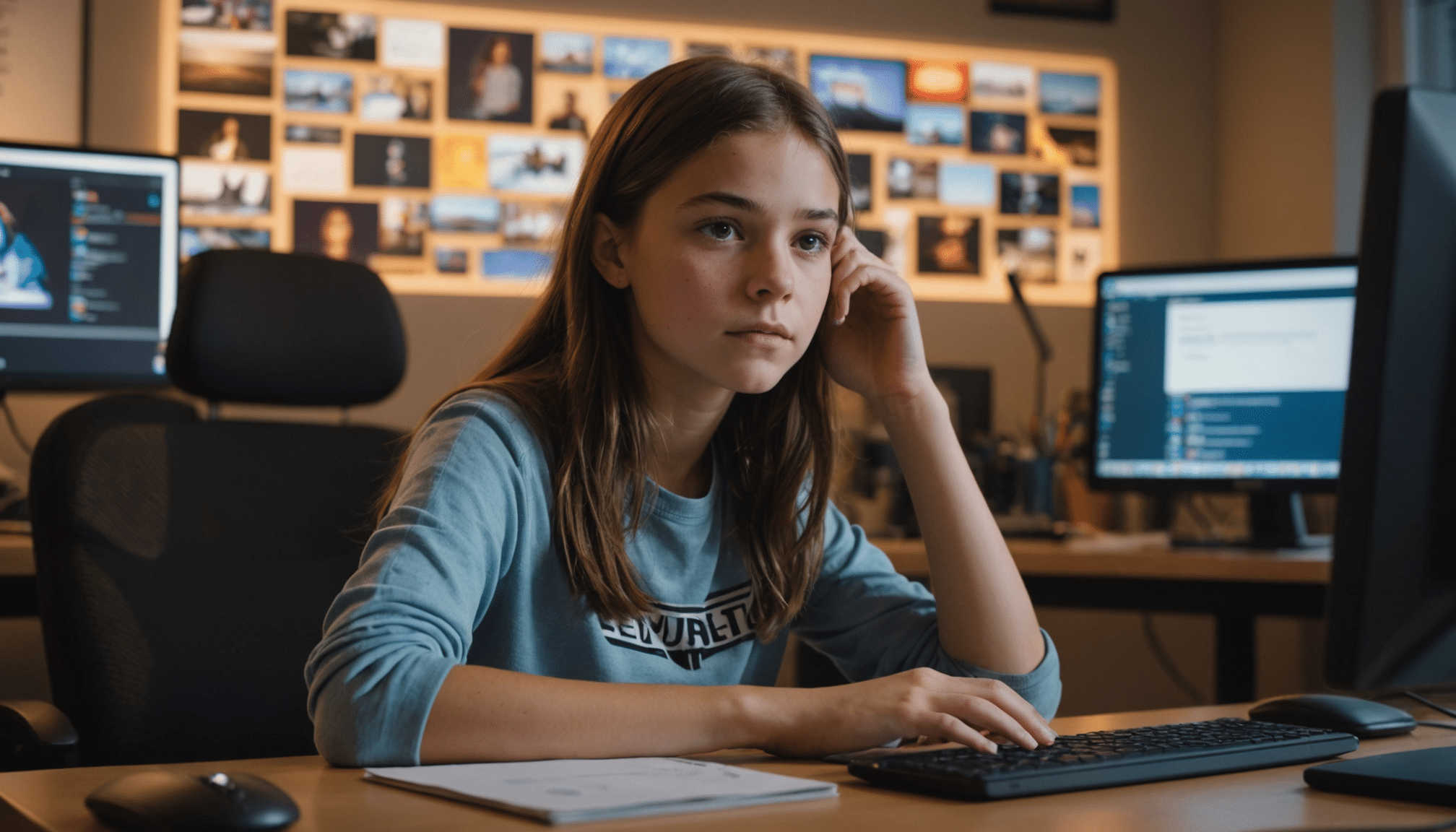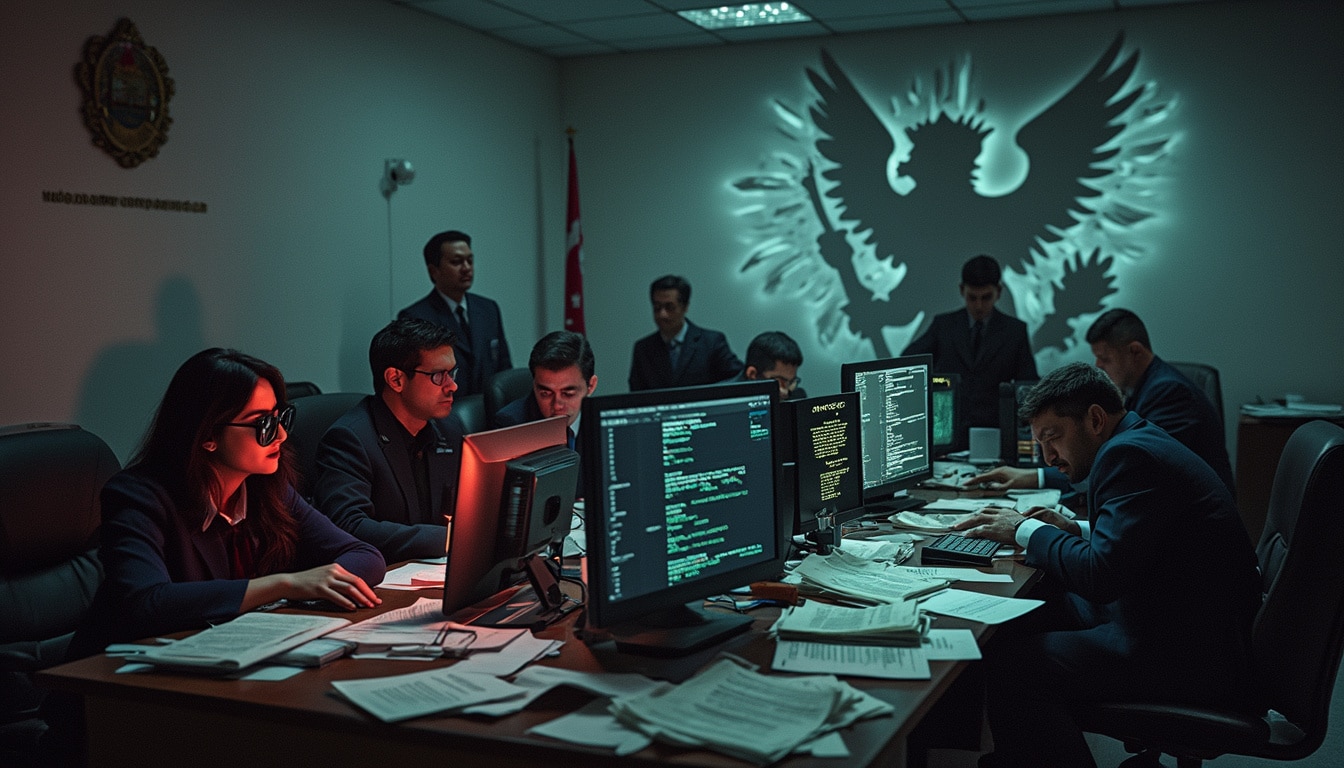In the digital jungle known as high school, where popularity is currency and every post is a potential landmine, one young girl’s experience with artificial intelligence took an unexpected—and terrifying—turn. Picture this: a seemingly innocent image from social media, hijacked by AI and turned into a fabricated display of nudity. Suddenly, Francesca, a 14-year-old student, found herself at the epicenter of a scandal at Westfield High School in New Jersey. Like watching a train wreck in slow motion, the impact of deepfake technology is leaving lasting scars on its teenage victims and prompting a much-needed conversation about privacy, ethics, and the shady corners of the internet.
A seemingly innocent school photo turned into a nightmare when advanced artificial intelligence transformed it into a nude image, shaking American high schools to their core. Francesca Mani, a 14-year-old student, was called to her principal’s office at Westfield High School in New Jersey and discovered that a picture of her had been altered into a revealing image using AI technology. « This is unacceptable, » Francesca exclaimed, highlighting a new digital menace that is yet another thing to worry about when you’re a teenager.
Table of contents
ToggleThe Rise of « Nudify » Websites
Websites like Clothoff have taken the dubious honor of being the pioneers of using AI to create seemingly realistic nude images from regular photos. A photo was downloaded from Instagram and stripped down to a degrading image. With millions of visits every month, such sites allow users to upload photos and receive a demo of images stripping away clothes, often resulting in disturbingly realistic results.
Invasion of Privacy and Dramatic Aftermath
Francesca and her classmates’ names were on the list of targets. She expressed her shock, stating, “I feel like it was a major violation of our privacy.” The incident caused not just a tarnished reputation for many girls but also deeply impacted their mental health. Yiota Souras, legal director at the National Center for Missing and Exploited Children, emphasizes the severe impact on victims’ psychological well-being.
The brave Francesca and her determined mother, Dorota, have taken a stand, advocating for stricter laws against the distribution of AI-modified images. Working with legislators, they have championed the Take It Down Act, which imposes criminal penalties for sharing such AI-generated photos. Recently passed by the Senate, this law requires social media platforms to remove these images within 48 hours. Dorota insists, “It’s not right that children are exposed to this.”
A Cross-Border Crisis
The case of Francesca is not isolated. Nearly 30 similar incidents have been reported across the United States, with platforms like Snapchat becoming vehicles for spreading these modified images, thus contributing to the increasingly common situation of online harassment. The difficulty in removing these images due to screenshots and copies adds to the distress of victims. Dorota has filed a police complaint, but no charges have been made yet, raising concerns about the lack of responsiveness from tech companies.
Yiota Souras calls for immediate action from companies to take responsibility and remove such content swiftly. “Companies must take immediate responsibility to delete this content,” she asserts, urging for a shift in handling these AI-created exploitations.

teens affected by ai manipulation
The invention of artificial intelligence has brought with it many wonders, like being able to order pizza without ever talking to a human, but it’s also caused quite a bit of mischief. Meet Francesca Mani, a 14-year-old whose ordinary school life in Westfield, New Jersey, turned extraordinary in the worst possible way. Out of nowhere, she was called to the principal’s office, where she discovered that an innocent picture of her had been transformed into an inappropriate image using AI. The fact that these AI-generated photos are being produced and shared is raising alarms and prompting serious discussion across the globe.
impact of ai-generated images on school environments
Some platforms are harnessing AI to create disturbingly realistic photos from innocent ones. This phenomenon isn’t just a problem for Francesca; it’s an epidemic, and schools in the U.S. are seeing cases rise like bread in a warm oven during a bake-off. Websites like Clothoff have gained traffic that most cats would envy, and the ease with which these images can be created and spread has made it a nightmare for young students. While some schools are rallying to mitigate the damage, it’s a challenge to combat the widespread normalization of such behavior among teens, who see it posted on popular platforms like Snapchat.
legal battles and advocacy against ai nudity
Francesca isn’t alone in her fight for justice. Her mother, Dorota, has snapped into action like a superhero donning their cape in the middle of traffic congestion. Partnering with lawmakers, they are advocating for stricter laws to curb the spread of AI-generated images. The proposed Take It Down Act would enforce criminal penalties for distributing such images, with the bill demanding prompt removal within 48 hours. While progress is being made through initiatives like the recent Senate approval, the battle is far from over. Francesca and Dorota are determined to prevent further exploitation, rallying for change in school policies and tech companies’ practices.














